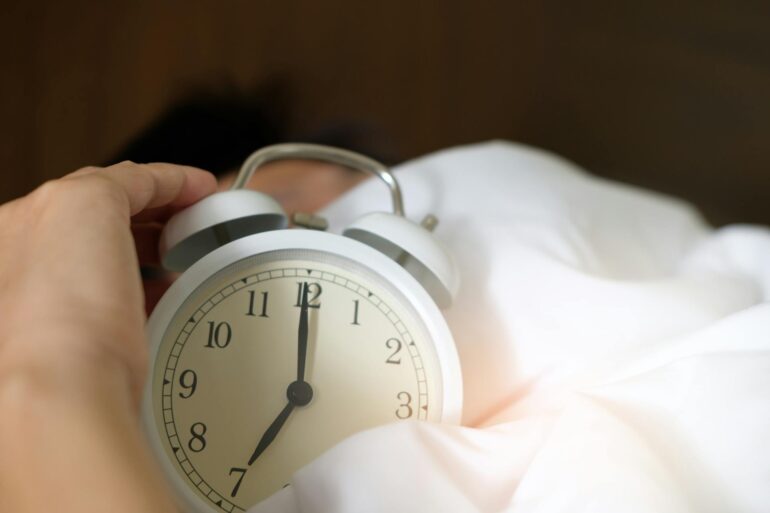We’ve all been there. You set your alarm to ensure you get a full 8 hours of sleep, yet you wake up feeling like you’ve barely closed your eyes. It’s frustrating and confusing, especially when you’re doing everything “right.” But why does this happen? The answer often lies in the quality of your sleep rather than the quantity. This post will explore the common reasons behind waking up tired, from disruptions in your sleep cycles to hidden health issues. By the end, you’ll have actionable tips to help you wake up refreshed and ready to tackle your day.
Understanding Sleep Cycles and Their Impact
To understand why you’re waking up tired, it’s important to first grasp how our sleep cycles work. Sleep isn’t just a single, restful state; it’s a series of stages that our bodies cycle through multiple times a night.
The Sleep Stages
- Light Sleep (Stages 1-2): This is where you transition from wakefulness to sleep. Your breathing and heart rate slow, and your body starts to relax.
- Deep Sleep (Stage 3): This restorative phase is when your body repairs itself and strengthens your immune system. Waking up during deep sleep often leaves you feeling groggy.
- REM Sleep: Short for Rapid Eye Movement sleep, this stage is crucial for cognitive functions like memory and mood regulation. Dreaming occurs here, and your brain is almost as active as when you’re awake.
Why Disruptions in Sleep Cycles Matter
Your body requires a balance of light, deep, and REM sleep to feel truly rested. Sleep disruptions like waking up frequently, loud noises, or even an uncomfortable mattress can prevent you from completing these natural cycles, leaving you feeling fatigued even after a seemingly long sleep.
Common Culprits Behind Your Tiredness
If you’re frequently waking up tired, there might be external or lifestyle factors at play. Here are some common culprits:
Poor Sleep Hygiene
- Uncomfortable Sleep Environment: Your bedroom’s temperature, noise levels, and bedding can significantly affect your sleep quality. For instance, an outdated mattress can disrupt your comfort.
- Irregular Sleep Schedule: Going to bed and waking up at different times every day can confuse your body’s internal clock, leading to restless sleep.
Diet and Hydration
- Caffeine: Consuming coffee or other caffeinated drinks too late in the day can interfere with your ability to fall asleep.
- Alcohol: While a glass of wine might make you sleepy initially, alcohol fragments your sleep and reduces time spent in restorative stages.
- Dehydration: Even mild dehydration can impact your energy levels and how well you sleep.
Stress and Anxiety
Stress and anxiety don’t just keep your mind racing at bedtime; they can also prevent your body from entering the deeper stages of sleep. This leaves you stuck in lighter stages where rest isn’t as restorative.
Health Conditions That Could Be the Cause
Sometimes, waking up tired is a symptom of an underlying health issue. Here are a few conditions to consider:
Sleep Apnea
Sleep apnea is a disorder where your breathing repeatedly stops and starts during sleep, lowering your oxygen levels and disrupting your sleep cycles. Symptoms include loud snoring, gasping for air during the night, and excessive daytime tiredness. If this sounds familiar, it’s worth discussing with a doctor.
Thyroid Issues
An underactive thyroid (hypothyroidism) can slow down your metabolism, leaving you feeling sluggish no matter how much rest you get. It’s often accompanied by other symptoms like weight gain, dry skin, and sensitivity to cold.
Vitamin Deficiencies
Lacking essential vitamins can also cause fatigue:
- Iron Deficiency: Essential for transporting oxygen in your blood, low iron levels can leave you feeling chronically tired.
- Vitamin D Deficiency: A lack of this “sunshine vitamin” not only affects your mood but also your energy levels.
- Vitamin B12 Deficiency: Vital for nerve function and energy production, low B12 levels can lead to fatigue and even problems with memory.
Actionable Tips for Better Sleep
Now that we’ve identified the potential causes, here are actionable steps to improve your sleep quality and wake up refreshed:
Create a Relaxing Bedtime Routine
- Spend 30 minutes winding down before bed with relaxing activities like reading or meditating.
- Avoid screens (phone, TV, or computer)—the blue light emitted can interfere with your melatonin production.
- Consider relaxing practices like aromatherapy or listening to calming music to prepare your mind for rest.
Optimize Your Sleep Environment
- Temperature: Keep your room cool, ideally between 60-67°F, for optimal sleep.
- Darkness: Invest in blackout curtains or an eye mask to block out light.
- Comfortable Bedding: Ensure your mattress and pillows align with your comfort needs. A California king memory foam mattress, for instance, can make a world of difference in sleep quality.
Recognize When to Seek Professional Help
If your tiredness persists despite implementing these tips, it might be time to consult a doctor. Sleep studies or blood tests can rule out underlying health conditions and provide clarity on why you’re not feeling rested.
Conclusion
Continually waking up tired can feel discouraging, but it’s a problem with solutions. By understanding your sleep cycles, addressing lifestyle factors, and seeking help for deeper health concerns, you can reclaim your mornings and feel truly rested. Are you ready to revamp your sleep routine? Start today by investing in better sleep hygiene, exploring potential health concerns, and enhancing your sleep environment. After all, better sleep leads to better days!






